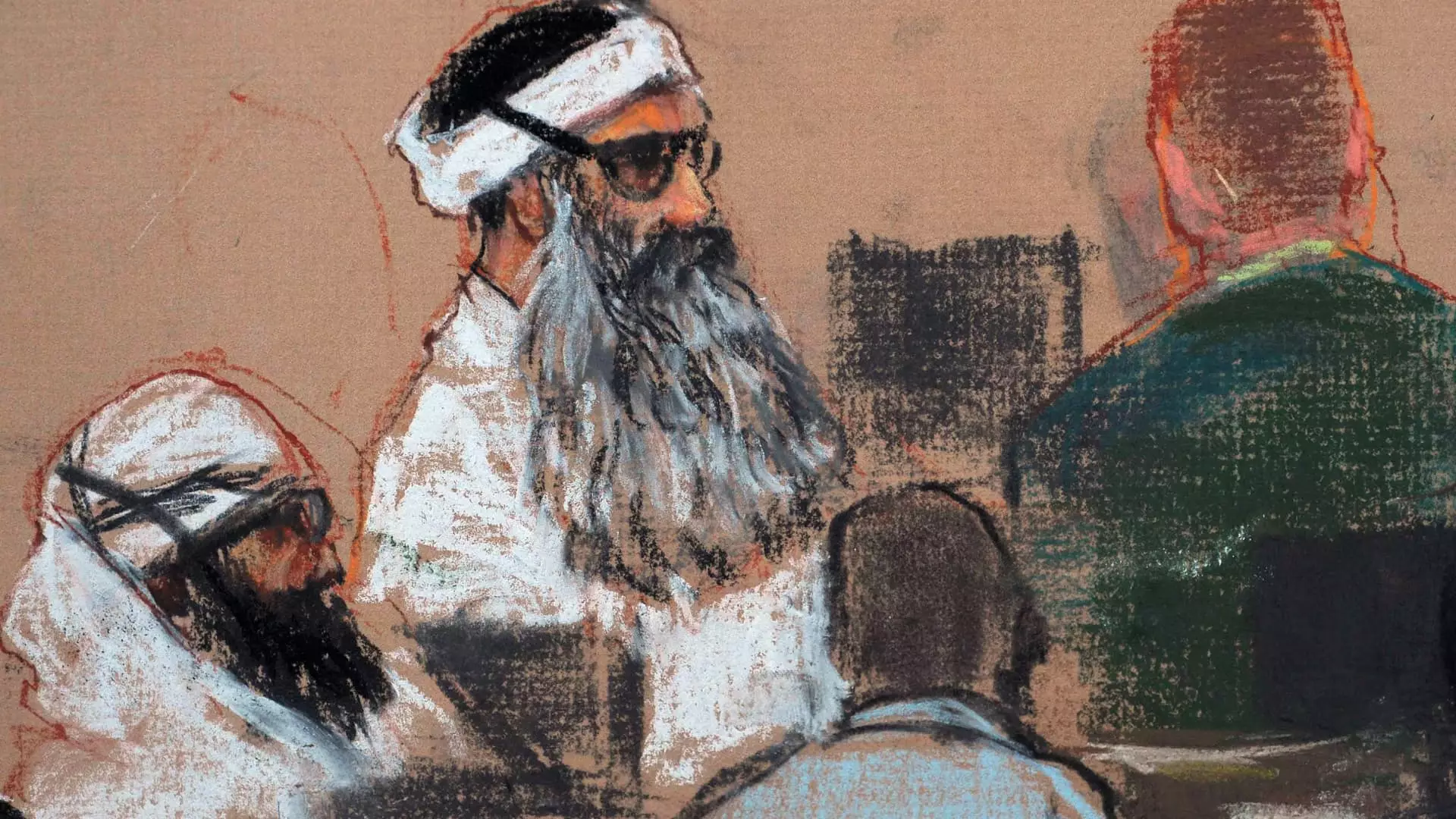The recent withdrawal of plea deals for the three men charged in the September 11 terrorist attacks has sparked significant debate regarding legal accountability, justice for victims’ families, and the implications of military commission decisions. Defense Secretary Lloyd Austin’s move to revoke the pre-trial agreements marks a crucial moment in U.S. military legal proceedings and reflects broader questions about the balance of power, responsibility, and public sentiment regarding national security issues.
On Friday, the Department of Defense announced the high-profile withdrawal of settled plea agreements involving Khalid Sheikh Mohammed, Walid Muhammad Salih Mubarak Bin ‘Attash, and Mustafa Ahmed Adam al Hawsawi. These individuals, accused of conspiring to carry out the tragic attacks that resulted in nearly 3,000 deaths in 2001, had reached agreements that would allow them to plead guilty to lesser charges and dodge the death penalty. Austin’s decision to retract these plea agreements underscores the significant political and emotional weight surrounding justice for 9/11.
In his memo to military commissions convening authority Susan Escallier, Austin highlighted the need for the ultimate decision regarding plea deals to rest with him, citing the “significance” of the case. This assertion of authority raises critical questions about the transparency and governance of military legal processes. By placing himself at the center of this decision-making, Austin not only assumed a pivotal role but also indicated a potential shift in how such sensitive cases may be managed moving forward.
Impact on Victims’ Families and Public Perception
The initial agreement sparked outrage among families of victims and various congressional leaders, reflecting a deeply rooted concern about the perceived leniency towards those responsible for such heinous acts. The emotional and psychological toll of the 9/11 attacks has not diminished over time, and the prospect of a plea deal which would mitigate the consequences for the defendants prompted a strong backlash. Critics, including members of Congress and former Attorney General Eric Holder, expressed alarm and disappointment, indicating that faith in the U.S. justice system was at stake.
This public criticism highlights the inflammatory nature of plea deals in cases involving terrorism, where the pending legal outcomes affect not only the victims’ families but also the broader American public. Discussions in Congress reveal both a sense of indignation and a strong desire for accountability in military and judicial processes. The ramifications of such decisions extend beyond legal implications; they tap into collective national grief and the quest for a semblance of justice.
The controversy surrounding the plea deal also illuminates the interplay between political pressures and military legal proceedings. The Republican-led House Oversight Committee announced its intent to investigate the circumstances surrounding the initial agreement just before Austin’s retraction. This highlights the politically charged environment surrounding questions of national security, justice, and military authority. Decisions made in such contexts can easily become politicized, creating additional layers of complexity concerning the administration’s handling of terrorism-related cases.
Given the historical context of how the U.S. dealt with terrorism suspects, Austin’s decision may reflect a response to both the intense scrutiny and the political fallout that could arise from perceived leniency. Former Attorney General Holder’s critique pointed to systemic issues within the justice framework that can emerge under the influence of political pressures. His remarks signal that beyond the specifics of this case, there is a broader dialogue on how justice can be achieved without compromising principles that uphold the rule of law.
The withdrawal of the plea deals for the accused 9/11 plotters is a multi-faceted issue that contemplates the fine balance between national security, legal accountability, and morality. As Secretary Austin and military commission authorities navigate this sensitive legal terrain, it is essential to ensure that the choices made reflect a commitment to justice that honors the memories of those lost on that tragic day. Upholding the integrity of the legal process may require vigilance and transparency to regain public trust and demonstrate that the core values of the justice system are not negotiable, even in the face of dire circumstances. This unfolding legal drama serves as a reminder of the weighty consequences that decisions in such contexts carry, resonating well beyond the courtroom and into the hearts of a nation still grappling with the implications of 9/11.


Leave a Reply